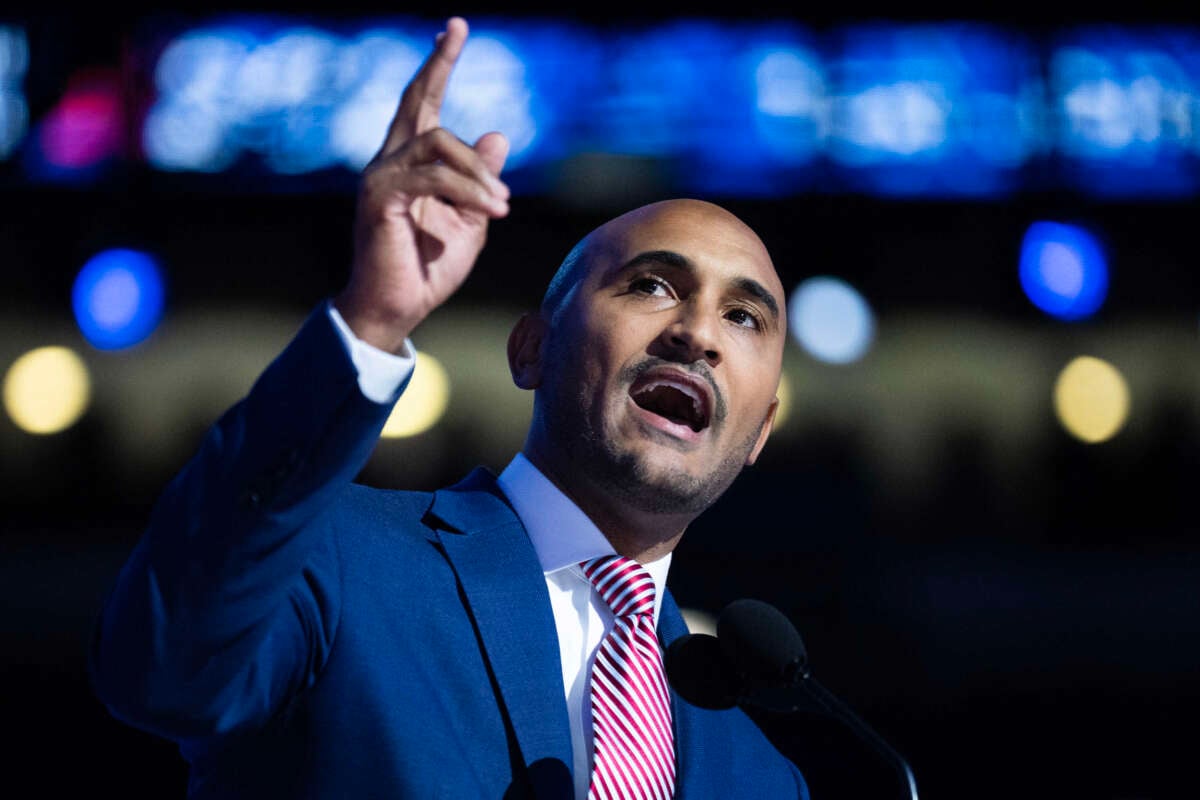Democrat Shomari Figures won Alabama’s Second Congressional District election on Tuesday, defeating his Republican opponent Caroleene Dobson and flipping control of the district from Republicans to Democrats.
Figures’s win is historic, as he is just the fourth Black person to win a congressional seat in Alabama’s history. And, for the first time ever, the state’s congressional delegation will be sending two Black members to Washington, D.C. in the next term, as Rep. Terri Sewell (D-Alabama) won reelection in the state’s Seventh Congressional District.
With more than 95 percent of the votes recorded, Figures secured 54.6 percent of support from voters, versus Dobson’s 45.4 percent.
The Second Congressional District, which was redrawn last year due to a court order, is a plurality Black voter district, stretching across south central Alabama through many counties that are commonly referred to as “the Black Belt” of the state.
Figures grew up in the district he now represents. His parents were instrumental in pushing for civil rights and educational opportunities in the state, with his father becoming a state senator and his mother winning that same seat after his passing. Figures also served in the Obama administration.
Figures said his desire to become a congressional lawmaker stemmed, in part, from seeing the role the federal government played in ensuring the civil rights of Black Alabamans were being recognized by the state, which has a long history of segregation and disenfranchisement of nonwhite residents.
“When you grow up Black, especially in Alabama, you learn pretty early the role that the federal government has played historically in making this state do right by Black people. And that is something that always resonated with me, and was one of the motivating factors for me seeking out a career in the federal government,” Figures said in an interview before the election.
Indeed, the district that Figures won was created only after a federal judge ruled last year that Alabama’s districts, drawn by a Republican-led state legislature, were an unconstitutional gerrymander that diluted the voting power of Black residents.
GOP lawmakers appealed that ruling, and it eventually made its way to the Supreme Court. Even with its conservative bloc majority, however, the high court affirmed the lower court’s order, telling state lawmakers they had to redraw the maps to allow for a second Black-plurality district. When lawmakers submitted a new map that still diluted Black voters, the lower court ordered a special master to draw one instead.
Figures’s win was considered one of the many election wins necessary this year for Democrats to take control of the U.S. House of Representatives. Although it’s unclear where control of the House currently stands, Republicans look to be on track to retaining control of that chamber of Congress.
As of Thursday, Republicans have secured 209 House seats, while Democrats have only won 196, with dozens of races yet to be called. A total of 218 seats are needed to control the House, and within the remaining races, it appears as though Republicans are winning more of those contests than Democrats are, though their margin of victory, if that happens, will likely be small.
Our most important fundraising appeal of the year
December is the most critical time of year for Truthout, because our nonprofit news is funded almost entirely by individual donations from readers like you. So before you navigate away, we ask that you take just a second to support Truthout with a tax-deductible donation.
This year is a little different. We are up against a far-reaching, wide-scale attack on press freedom coming from the Trump administration. 2025 was a year of frightening censorship, news industry corporate consolidation, and worsening financial conditions for progressive nonprofits across the board.
We can only resist Trump’s agenda by cultivating a strong base of support. The right-wing mediasphere is funded comfortably by billionaire owners and venture capitalist philanthropists. At Truthout, we have you.
We’ve set an ambitious target for our year-end campaign — a goal of $250,000 to keep up our fight against authoritarianism in 2026. Please take a meaningful action in this fight: make a one-time or monthly donation to Truthout before December 31. If you have the means, please dig deep.
